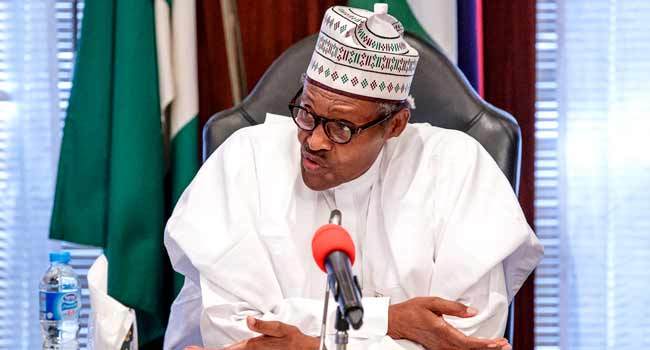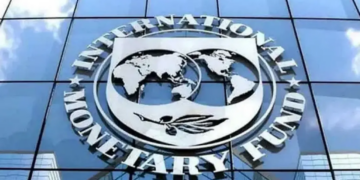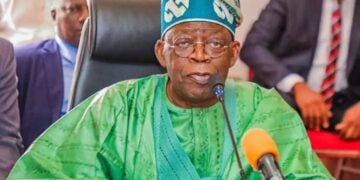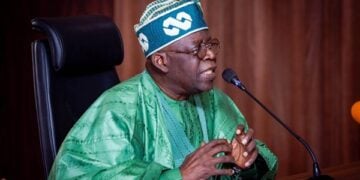President Muhammadu Buhari has inaugurated the Nigeria End Malaria Council (NEMC) and projected that the successful implementation of its agenda and savings from the estimated economic burden of the disease would save Nigeria about N687 billion in 2022 and N2 trillion by 2030.
The president in a statement by his spokesman, Femi Adesina, told the 16-member council headed by the founder and president of Dangote Group, Alhaji Aliko Dangote, that beyond improving the quality of life, health and well-being of Nigerians, the concerted strategy to tackle malaria had both public health as well as socio-economic benefits for Nigeria.
He said, ‘‘Our inauguration today will therefore ensure that malaria elimination remains a priority on our agenda, with strong political commitment from leaders at all levels.
‘‘Additionally, the End Malaria Council will provide a platform to advocate for more funding to protect and sustain progress made so far by our country, and put us on a pathway to ending malaria for good,’’ the president said.
While expressing concern that the age-long disease had remained a major public health challenge in Nigeria, Buhari cited the World Health Organisation (WHO) report of 2021, showing that Nigeria alone accounts for 27 percent of all cases of malaria and 32 percent of deaths globally.
‘‘Malaria infection can cause severe disease and complication in pregnant women and lead to high rates of miscarriage.
‘‘It is also responsible for a considerable proportion of deaths in infants and young children, with children under five years being the most vulnerable group affected. These are reasons we must not relent in fighting malaria,’’ he said.
On his choice of Dangote to chair the council, Buhari said it was in recognition of the track record and passion of Africa’s richest man in supporting initiatives on various health issues such as polio and primary health care system strengthening.
He expressed confidence that Dangote would bring his outstanding achievements to help the country achieve its goal of malaria elimination, adding that a group of eminent personalities, who have also made their mark across all walks of life, have been selected to work in the Council.
President Buhari used the occasion to thank the chairman of the African Leaders Malaria Alliance (ALMA), President Uhuru Kenyatta of Kenya, the executive secretary of ALMA, RBM Partnership in Nigeria for their continuous support to the Federal Ministry of Health and the malaria programme, in particular.
In separate remarks, the minister of health, Osagie Ehanire, and the minister of state for health, Joseph Ekumankama Nkama, said since 2010, Nigeria has been recording a continuous decline in malaria from 42 per cent in 2010, 27 per cent in 2015 to 23 per cent in 2018.
Quoting figures from the 2010 Nigeria Malaria Indicator Survey and the 2018 Nigeria Demographic and Health Survey, they attributed the decline to the thorough implementation of the National Malaria Strategic Plan (NMSP).
The council members are Shehu Ibrahim, permanent secretary, Office of the Vice President on Political and Economic Affairs, Governor Kayode Fayemi of Ekiti State and chairman of the Nigeria Governors’ Forum (NGF), Senator Yahaya Oloriegbe, chairman, Senate Committee on Health, Hon. Abubakar Dahiru, Chairman, House Committee on AIDS, TB and Malaria, Dr Ehanire, Hon. Ekumankama, Mahmuda Mamman, permanent secretary, Federal Minister of Health.
Others are Tony Elumelu, chairman, Board of Directors, UBA, Folurunsho Alakija, CEO, Rose of Sharon Group, Herbert Wigwe, CEO, Access Bank, Femi Otedola, CEO Forte Oil, Hajiya Lami Lau, president, National Council of Women Societies (NCWS), John Cardinal Onaiyekan, Emertius Archbishop of Abuja Catholic Archdiocese, Alhaja Rafiyat Sanni, national amira, Federation of Muslim Women Nigeria (FOWAN) and Dr Perpetua Uhomoibhi, NEMC Secretariat/National Coordinator, National Malaria Elimination Programme (NMEP).





